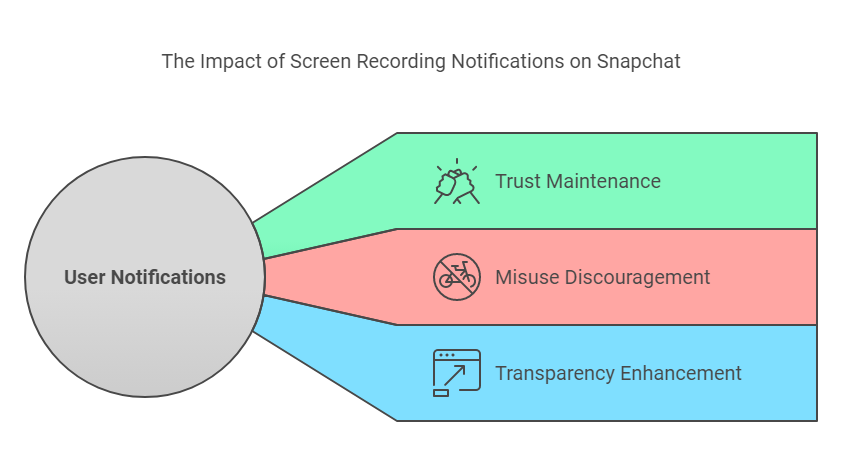what does screen recording mean on snapchat
what does screen recording mean on snapchat Snapchat, one of the most popular social media platforms among Gen Z and millennials, is known for its ephemeral content. Snaps and Stories disappear after being viewed, fostering a sense of privacy and impermanence. However, the concept of screen recording introduces a twist to this fleeting nature. Let’s delve into what screen recording means on Snapchat and its implications for users.

Understanding Screen Recording on Snapchat
Screen recording refers to the act of capturing a video of what’s happening on your smartphone’s screen. This can be done using built-in screen recording tools on iOS and Android devices or through third-party apps. On Snapchat, this means recording Snaps, Stories, or chats that would otherwise vanish after viewing.
Snapchat has mechanisms in place to alert users when someone screenshots or screen records their content. This feature aligns with the platform’s commitment to user privacy, as it ensures transparency when content is saved or shared beyond its intended scope.
Why Do People Screen Record on Snapchat?
There are various reasons why someone might want to screen record content on Snapchat:
- Saving Memorable Moments: Some Snaps or Stories might hold sentimental value, prompting users to save them.
- Documentation: People may want to document conversations or content for personal or legal reasons.
- Sharing with Others: While Snapchat discourages unauthorized sharing, some users might record content to share it outside the app.
- Content Creation: Influencers or content creators might screen record Snaps to include them in compilations or tutorials.
How Snapchat Detects Screen Recording
Snapchat’s detection system is designed to notify users if someone screenshots or records their content. Here’s how it works:
- Notifications: When you screen record a Snap or Story, the sender gets a notification. For instance, if you record a Snap, they might see a small icon indicating the action.
- Indicator Icons: In chats, a double arrow symbol (⤷) appears if someone screen records your messages.
- Limitations: While Snapchat’s detection is robust, it’s not foolproof. Some third-party tools or external devices can bypass these notifications.
Ethical and Legal Implications of Screen Recording on Snapchat
Screen recording content on Snapchat raises several ethical and legal questions:
Ethical Concerns
- Breach of Trust: Snapchat operates on the premise of privacy. Recording someone’s content without consent can feel like a violation of this trust.
- Misuse of Content: Recorded content can be edited or used maliciously, leading to potential harm or embarrassment.
Legal Considerations
- Privacy Laws: Depending on the jurisdiction, recording and sharing someone’s content without permission might breach privacy laws.
- Copyright Issues: Content creators have rights over their creations. Recording and redistributing such content without consent could lead to copyright infringements.
How to Protect Your Content on Snapchat
If you’re concerned about your content being recorded without your consent, here are some tips:
- Be Selective with Your Audience: Use Snapchat’s privacy settings to share content only with trusted individuals.
- Enable Ghost Mode: This hides your location, reducing the risk of unwanted attention.
- Avoid Sharing Sensitive Content: Think twice before sharing content that could be misused.
- Monitor Notifications: Stay vigilant about alerts indicating that your content has been recorded or screenshotted.
- Report Violations: If you suspect misuse, report the user to Snapchat and consider taking legal action if necessary.
Pros and Cons of Screen Recording on Snapchat
Pros
- Memory Preservation: Allows users to save cherished moments.
- Evidence Collection: Useful for documenting important interactions.
- Content Archiving: Enables influencers and creators to repurpose content.
Cons
- Breach of Privacy: Undermines the ephemeral nature of Snapchat.
- Potential Misuse: Recorded content can be manipulated or shared without consent.
- Ethical Dilemmas: Raises questions about the boundaries of digital behavior.
Snapchat’s Stance on Screen Recording
Snapchat does not explicitly prohibit screen recording but emphasizes transparency by notifying users. The platform encourages users to respect others’ privacy and adhere to community guidelines. Violating these norms can lead to account suspension or bans.
Tips for Ethical Screen Recording
If you choose to screen record on Snapchat, consider these ethical practices:
- Seek Consent: Always ask the sender before recording their content.
- Use Content Responsibly: Avoid sharing recorded content without permission.
- Respect Privacy: Be mindful of the sender’s intentions and context.
- Avoid Malicious Intentions: Never use recorded content to harm or embarrass others.
Conclusion
Screen recording on Snapchat is a double-edged sword. While it offers the convenience of saving ephemeral content, it also challenges the platform’s core promise of privacy. By understanding its implications and using the feature responsibly, users can navigate Snapchat’s digital landscape ethically and enjoyably.
FAQs
- Does Snapchat notify when someone screen records? Yes, Snapchat notifies the sender when their Snap, Story, or chat is screen recorded.
- Can you bypass Snapchat’s screen recording detection? While some tools and methods claim to bypass detection, using them is unethical and may violate Snapchat’s terms of service.
- Is screen recording illegal? The legality of screen recording depends on the context and jurisdiction. Recording without consent may breach privacy or copyright laws.
- How can I stop someone from screen recording my Snaps? Use privacy settings, avoid sharing sensitive content, and monitor notifications for any recording alerts.
- Can I recover a Snap if someone records it? While the Snap itself cannot be recovered, you can report the incident to Snapchat for further action.
Meta Description
Discover what screen recording means on Snapchat and its impact on privacy. Learn about detection, ethical considerations, and how to protect your content on the platform.

